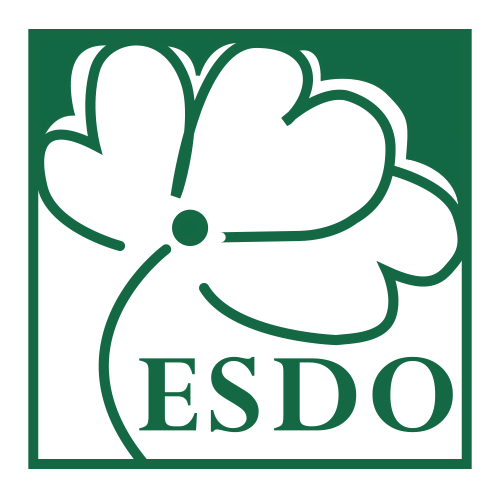2.6 million tons of single-use plastic waste enter the Bay of Bengal every year!
Dhaka, November 20, 2022: Each day, 18 transboundary rivers in Bangladesh carry approximately 15,345 tons of single-use plastic waste. 2802 tons. 2519 tons come from India and 284 tons from Myanmar. According to an ESDO study, nearly half a million tons of single-use plastic waste enter our Bay of Bengal every year. A dialogue was conducted at a Dhaka hotel on Sunday to reveal the study results.
The study was conducted by Environment and Social Development Organization-ESDO in collaboration with the Plastic Solutions Fund and the Global Alliance of Incineration Alternatives (GAIA). This study aims to increase regional collaboration for reducing the transboundary movement of hazardous plastic waste and advocate with government and regulators to advance policy decisions.
Plastic pollution in our aquatic systems, especially through transboundary movement, was the focus of the study, according to the study team leader, Dr Shahriar Hossain. It is intended to assist in making decisions related to riverine ecosystem conservation in Bangladesh, he said.
To conduct the study, baseline surveys had been conducted through questionnaires and carried out from December 2020 to July 2022 on a total of 7020 people from different societies like educated people, students, boatmen, fishermen, shopkeepers, etc. where around 11,700 samples of single-use plastic waste were collected from transboundary streams and surrounding bank areas. A set of structured questionnaires was formed to ensure getting all relevant data from the targeted segment.
The transboundary rivers of Bangladesh which were assessed for this study are, in the case of upstream Mahananda, Dahuk, Karatoya, Tista, Dharla, Dudhkumar, Brahmaputra, Surma, Kushiyara; in the case of midstream Ganges, and in case of downstream Ichamati-Kalindi, and Naf.
The entire event was divided into two segments. The first segment was to launch the report and the second segment was to have an elaborate discussion on the upcoming Intergovernmental negotiating committee (INC) on the global plastic treaty and how Bangladesh could act on it.
The second segment of the event was focused on the United Nations Environment Assembly (UNEA) Resolution 5/14: End plastic pollution: towards an international legally binding instrument. The discussed issues & recommendations of this dialogue would be placed in the upcoming sessions of the Intergovernmental negotiating committee (INC) which will negotiate the full text of the new plastics treaty.
The event was chaired by Syed Marghub Murshed, respected Chairperson of ESDO and former secretary of the government of Bangladesh. According to him, “Our water bodies have become a toxic pool of waste, contaminated by everything from drifting plastic packs to synthetic waste. It is high time we should step up and take responsibility for one of the most important resources of our country. Additionally, the upcoming plastic treaty will also help our cause”.
Dr Manjur Ahmed Chowdhury, Chairman of the National River Conservation Commission graced the event as chief guest. He stated that “Bangladesh is called a riverine country. But this river is now under threat. This terrible single-use plastic, which never decomposes, is responsible for the destruction of our rivers. We are hopeful that our government will definitely take appropriate action in this regard”
According to the special guest of the event Dr. Mahfuzul Haque, Adjunct Faculty, Department of Sociology, BUP, Former Secretary, Government of People’s Republic of Bangladesh “It is not enough for the government alone to protect our rivers. We all need to come forward. Also, we need to discuss with all the countries from which the single-use plastics are floating for a proper solution.”
Dr. Steve Fletcher, Professor, of Ocean Policy and Economy, Director, Sustainability and the Environment Research Theme & Revolution Plastics, University of Portsmouth, UK attended the event as a guest speaker. He provided his overview on Single-use Plastic Pollution, focusing on the Global Plastic Treaty.
According to the Executive Director of ESDO Ms, Siddika Sultana, “’It is really concerning because Bangladesh is one of the most plastic-polluted countries in South Asia. Plastic has a significant environmental impact. All of these facts are well known, but the plastic pollution situation is worsening by the day in Bangladesh. Because it is a worldwide issue, the solution must be global as well.”
Jacob Kean-Hammerson, Project Officer (Climate and Ocean Operations), Environmental Investigation Agency (EIA), UK joined the event virtually. He briefed on the Global Plastics Agreement, highlighting important issues that should be addressed at the INC meetings.
According to the statement of the Coordinator of GAIA India, Mr. Shibu K Nair, “The upcoming Global Plastics Agreement will help every country to get rid of this single-use plastic pollution. we all should now focus on this so that we can get rid of this single-use plastic for good.”
The plastic treaty will be a great milestone for all of us. However, the emphasis should be on a game-changing infrastructure that will prevent plastic from ever reaching the ocean in the first place, rather than on recyclable or reusable choices.
The theme presentation was presented by ESDO’s Assistant Program Officer Hridita Ferdous. Furthermore, representatives from Government, National and International organizations, different universities, different media and ESDO team members were present at the event.
